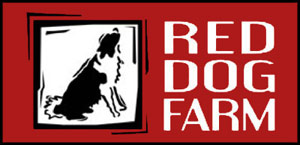Newsletter 7/11/18 – Farm Weavers
Just as summer is heating up, the crew here at the farm is too. As with anything, there are high and low tides, or what’s more commonly referred to as ups and downs. What everyone needs is a high tide; the best time to go get “it”—whatever “it” is. Fortunately for us the metaphorical water level is rising and, most importantly, our heads are still above the water line…five feet high and rising. Our harvest list has nearly doubled, our orders keep coming in only to fly out the door, and somehow the crew continuously handles each crop painlessly and accurately. I’d like to think we’re getting the hang of this!
As the demands from our vegetables increase, our field crew has stepped up to match the demands. First off, our farm force has grown to a head count of seventeen. With a full lineup, our crew is able to tackle every wave of increased workload that comes our way without missing a beet—literally, we leave no beet behind. Amongst the field crew are what I like to consider “farm weavers”: people who look like regular farmers, but have hidden capabilities and/or a wrench or two up their sleeves. These farm weavers can be found doing all the normal field crew work yet also sneak off to take on miniature departments of their own. Things such as irrigation lines, drip schedules, greenhouses, and so forth have all been naturally assigned individuals that monitor and repair said systems on a day-to-day basis, allowing the rest of the farm to continue operations. Often the work of farm weavers goes unnoticed, but is critical to keeping the whole crew above water.
I myself have become somewhat of a farm weaver here at Red Dog Farm. Often, I can be found sneaking off to tractor land in order to till beds prior to transplanting new seedlings or cultivating beds in order to keep weeds from overtaking our growing vegetables. Aside from tractor work I have recently taken on a miniature project of overhead irrigation; in efforts to minimize labor when moving lines. Now that the new, longer lines are complete the crew as a whole spends less time and energy during irrigation moves. Personally, it feels great to know that my efforts, as well as each crew member’s efforts, whether seen or not, help accomplish our daily goals and noticeably dissipate the overwhelming feeling of keeping up with a busy farm. We are definitely ahead of the curve this year and it feels wonderful.
Cheers—to a great farm and an even better crew!

